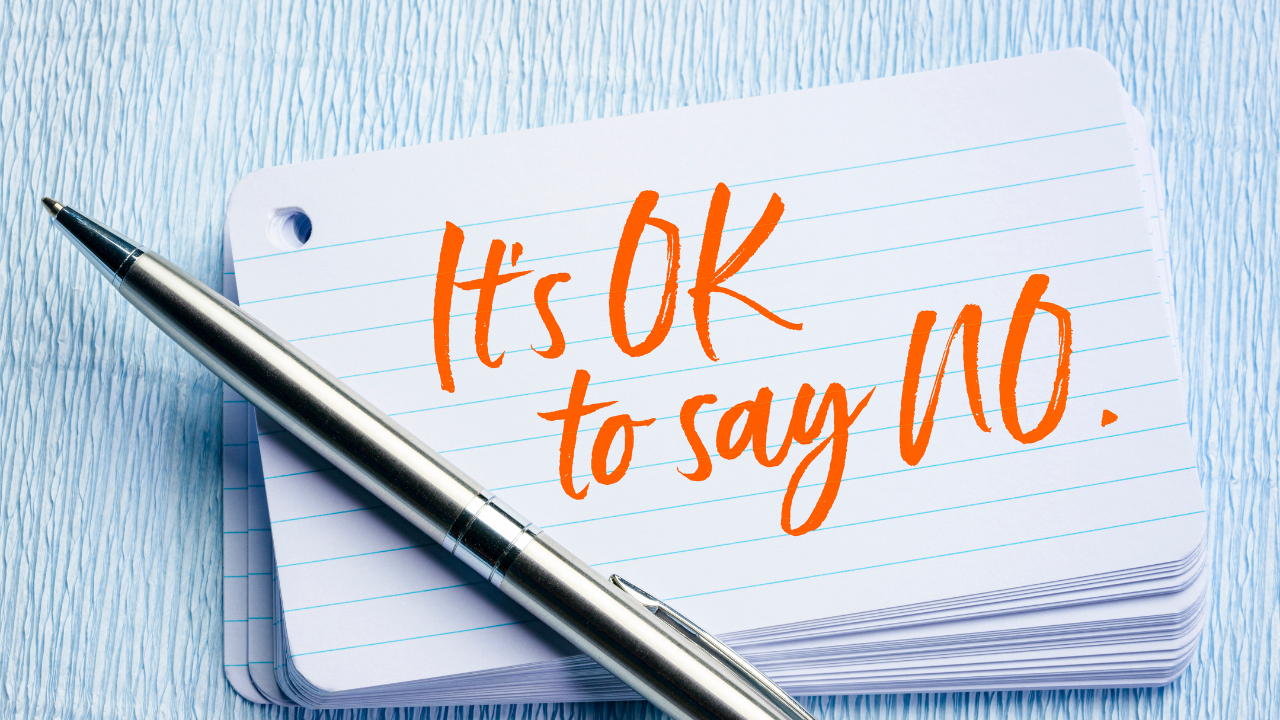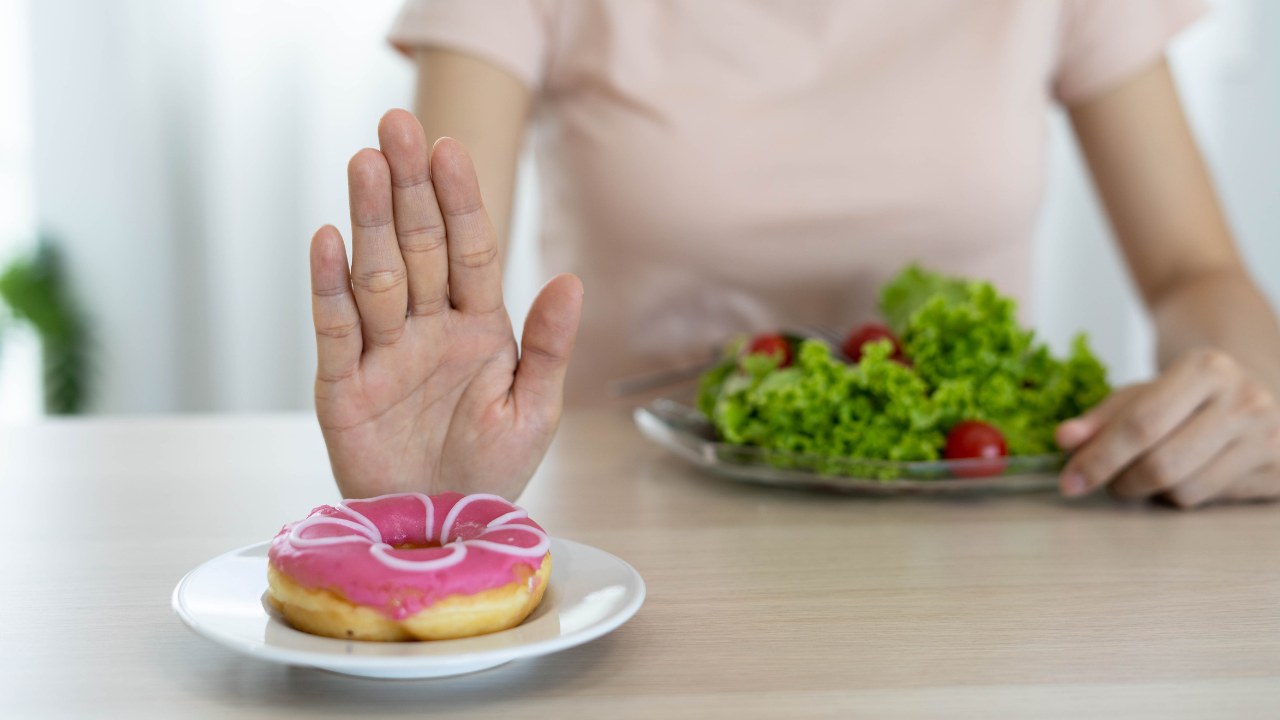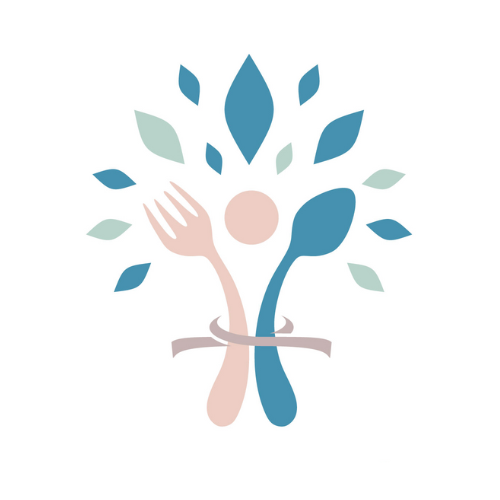
18 Feb How to Reverse Type 2 Diabetes: How to Handle Social Pressure and Still Prioritise Your Health
When you’re on a journey to reverse type 2 diabetes, social situations can sometimes feel like emotional minefields. Maybe it’s a friend insisting you “just try one bite” of dessert, a family member questioning your food choices, or a colleague offering cake during a celebration at work. Saying “no” can feel awkward, even when you know it’s the right choice for your health.
But here’s the truth: protecting your health is never rude. Understanding why saying no feels hard — and learning how to do it with kindness and confidence — can make a huge difference in your long-term success with reversing type 2 diabetes.
Why is it so hard to say no when you’re trying to reverse type 2 diabetes?
From an evolutionary standpoint, humans are wired to seek connection and approval. Saying “yes” makes others happy, and that triggers dopamine — our brain’s feel-good chemical. That’s why declining food, even politely, can feel uncomfortable or anxiety-inducing.
However, when those moments of people-pleasing lead to blood sugar spikes, discomfort, or guilt, it’s your health that suffers. Recognising this biological impulse helps you reframe it — you’re not being difficult, you’re being protective of your future self.
Learning to assert your needs with empathy is a powerful part of managing and reversing type 2 diabetes.
What happens when you prioritise others’ comfort over your health?
Let’s be honest — we’ve all done it. We’ve eaten something we didn’t want to, just to avoid making things awkward. But the cost goes beyond one slice of cheesecake or a piece of birthday cake.
Every time you silence your needs, you reinforce the idea that your health is less important than someone else’s momentary comfort. Over time, this can lead to resentment, guilt, and — most importantly — setbacks in your goal to reverse type 2 diabetes.
The hidden costs of people-pleasing
- Physical cost: Blood sugar spikes, fatigue, and potential complications.
- Emotional cost: Diminished self-worth and anxiety around social eating.
- Relationship cost: Setting patterns where your health needs are dismissed or minimised.
Your body deserves better. Your health deserves to come first.

How can you reframe your mindset and respond with confidence?
Changing how you communicate can transform these moments from stressful to empowering. The key? Positive framing and gratitude.
Try saying:
- “I’m choosing foods that make me feel my best right now.”
- “Thank you so much for thinking of me — that looks amazing!”
- “I’ve found that eating differently has really helped my blood sugar levels.”
These responses are kind but clear — and they help others respect your boundaries while keeping the mood positive.
What practical strategies can help you manage social eating while reversing type 2 diabetes?
Preparation makes all the difference. A little planning helps you feel confident and in control, no matter the setting.
- Eat something nourishing before social events so you’re not hungry or tempted.
- Bring a dish that fits your eating plan to share with others.
- Keep a blood-sugar-friendly snack with you — like nuts or cheese.
- Suggest non-food activities like a walk, games, or coffee dates instead of meals out.
These small steps support your goals and reduce the pressure to “just have a bite.”
What can you say when people keep pushing food?
Here are some friendly but firm responses for common scenarios:
When someone says “Just one won’t hurt”
- “I appreciate the offer, but even small amounts can affect my blood sugar for hours.”
- “Managing type 2 diabetes is a 24/7 job for me, and I want to stay consistent.”
- “Thank you — it looks great, but I feel so much better when I stick to my plan.”
When the baker or cook insists
- “Your food always looks delicious! Maybe we can try a blood-sugar-friendly recipe together?”
- “I’d love to help adapt this recipe so it works for both of us!”
When you’re at work or a party
- “I’m following my doctor’s plan to reverse type 2 diabetes, so I need to be careful.”
- “I’ve noticed huge improvements in my health since I changed my diet — I want to keep that up!”
- “Thank you for thinking of me — I’ll stick with what works for my blood sugar today.”
When it’s a family gathering
-
- “I know you show love through food — and I love that! Let me show you a recipe that’s working for me.”
- “Certain foods make me feel unwell now, and I want to take care of myself.”
- “Maybe we could start a new family tradition with healthier dishes!”

How can explaining the science help others understand your choices?
Sometimes people simply don’t understand what managing type 2 diabetes really means. Educating them briefly — with kindness — can change their perspective.
Try saying:
- “My body processes carbohydrates differently now, so I need to be careful with certain foods.”
- “When I eat sugar, my blood sugar spikes and it makes me feel unwell for hours.”
- “I’m managing type 2 diabetes naturally, and every food choice matters for my progress.”
You don’t have to over-explain — just enough to help others understand that your choices come from care, not restriction.
Why does setting boundaries help you reverse type 2 diabetes?
Your journey is about more than food — it’s about self-respect, self-awareness, and long-term health. Each time you assert your boundaries, you strengthen your mindset and your ability to stay consistent.
When you say no to high-sugar foods, you’re not depriving yourself — you’re saying yes to better energy, clearer thinking, improved mood, and long-term blood sugar balance.
If you need help staying motivated, check out my three-part Health Breakthrough video series for inspiration and practical guidance on building healthy habits for life.
What should you remember the next time you feel pressured?
When you feel that familiar social pressure to please others, take a deep breath and remind yourself of this truth:
Every time you say “no” to something that harms your blood sugar, you’re saying “yes” to your health, your future, and your happiness.
You’re not being difficult. You’re being intentional. And anyone who truly cares about you will understand and support that.
Takeaway
Your journey to reverse type 2 diabetes is a balance between social connection and self-care. With practice, you can handle those awkward food moments gracefully, protect your health, and still enjoy time with the people you love. You deserve to feel well — and setting boundaries is a powerful step toward lasting success.
